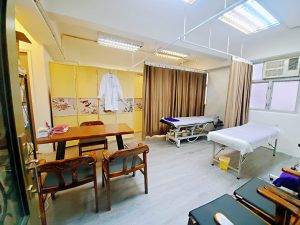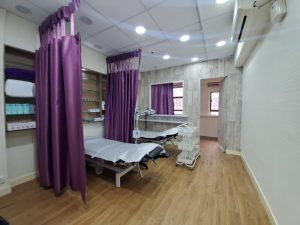The origin and development of Hong Kong Dit Da
Dit Da of the old age
There is no objective standard for what people used to call “Dit Da masters” and “Dit Da guys.” Its origin is related to the martial arts atmosphere that prevailed in Hong Kong in the last century. Because martial arts practitioners practice boxing in the martial arts gym, and they will inevitably have injuries and bruises when they are in the same discipline, the martial arts gym or martial arts gym has developed a set of Traditional Chinese medicine is based on the treatment of pain and body wounds with specific methods. At that time, there was even a saying of “medical martial arts family.” Because there is no set of prescribed prescriptions and procedures for the treatment of bruises, each medical clinic has its own set of experience and practice methods. Because this set of folk medicine is slowly spreading widely, there are many signs in the folks, and it is effective for some external diseases, swelling and swelling, so it is popular. Over time, the use of boiled ointment to treat strains, fractures, dislocations and other limb injuries “Dit Da Medical Center” and “Dit Da Shop” have become very common. (Reference: What is Dit Da?)
The persons responsible for palpation and diagnosis in the “Boiled-back Medical Center” are originally martial arts practitioners, but because most of them also have knowledge of Chinese medicine, they also serve as the function of prescribing and curing diseases by Chinese medicine, or are private barefoot doctors. Therefore, they are also known as “boiled doctors” and “Dit Da masters.” Most of these “Dit Da masters” use a mentoring system to pass on the techniques and prescriptions of various schools to their apprentices. This practice is also very similar to the inheritance of martial arts.
The issue of retention and abolition of the Chinese bone-setting industry nowadays
Hong Kong’s existing bone-setting shops are no longer as they used to be, and most of them are martial arts practitioners and bone-beating (Dit Da) jobs. There are two main reasons:
The apprenticeship is declining
First, the current martial arts practice has changed from the previous immersed hand-to-hand combat to a point-to-stop and competition mode. If the weapon is used in sparring events, it is even rarer to sell. Even if there are burial fighting events, there are sufficient protection measures, such as gloves, headgear, armor, etc., so the chance of injury is greatly reduced than before. Therefore, nowadays, people who learn boxing and martial arts rarely learn from their masters. The principle of beating, the inheritance of the old school, is also gradually declining.
《Chinese Medicine Ordinance》And Chinese medicine registration system
The second reason is because the Hong Kong government implemented《Chinese Medicine Ordinance》
To provide for the regulation of activities or matters related to Chinese medicine, including the registration of Chinese medicine practitioners, the licensing of Chinese medicine practitioners, the registration of proprietary Chinese medicines, and the manufacture, possession and sale of Chinese medicines.
Since then, medical matters related to bone-setting have been included in the regulation of the Chinese medicine “Orthopedics and Traumatology”. The law establishes a registration system for Chinese medicine practitioners engaged in general Chinese medicine, orthopedics and acupuncture. This system will pass the holding of qualification examinations, and implement the registration and disciplinary system, and set the threshold for the qualifications of Chinese medicine examinations in the degree courses of three designated universities in Hong Kong. In fact, due to the above reasons, many bone traumatologists who are engaged in orthopedic treatment are people with no professional academic experience. Therefore, the law provides an exemption part. If it is proved that the person has more than 15 years of practicing experience, the qualification test and review procedure can be exempted. Register directly as a Chinese medicine practitioner. However, this registration system is not compulsory, and the term Dit da has been used in the private sector for many years. Therefore, some Chinese Dit da shops still use the name Dit da to provide the public with pain relief or massage, etc., which are not subject to legal regulation. Health services.
The influence of the “Dit Da” industry in Hong Kong
Although the bone-setting industry has been integrated into the Department of Traditional Chinese Medicine (Orthopedics and Traumatology) in recent years, the public has a better understanding of the qualifications of medical personnel, but the influence of bone-setting medicine has spread throughout many Chinese areas, and many families must have one or two in their homes. “Being at the door with alcoholic beverages”, bone-setting treatment is still the Chinese people’s first choice for treatment of various surgical diseases. (Reference: Commonly used prescriptions for bone-setting)
Hong Kong’s Chinese Traditional Chinese Medicine Clinic
Most of them are handled by Chinese medicine practitioners trained by some colleges, and a small number of them are still handled by some old Chinese doctors or experienced bone-setting masters. However, these shops are getting less and less every day. Due to the regulations on Chinese medicine, those who have rich experience in practicing medicine in the past Masters can become listed or registered Chinese medicine practitioners. They can use this professional ability to continue practicing medicine, but now they must pass the training of the academy before they can be registered. Therefore, the number of old-fashioned Chinese bone-setting halls is getting less and less every day. You can see the prosperous age of several iron pavilions on the street.




